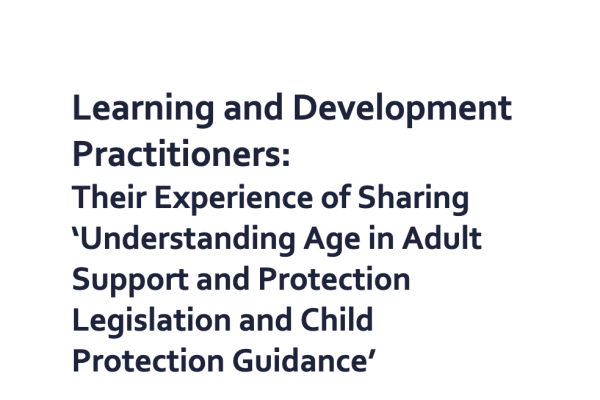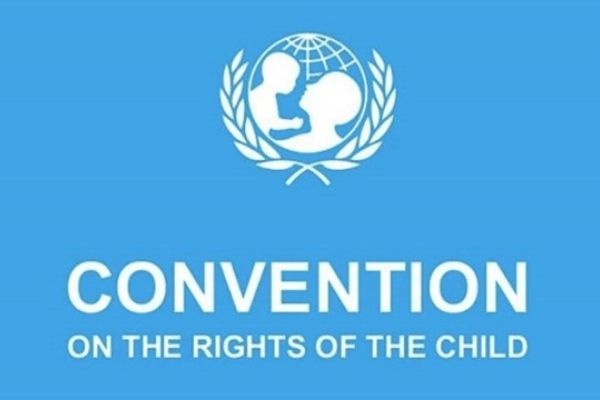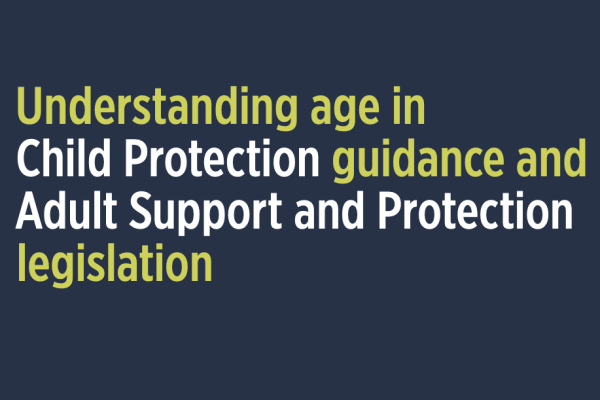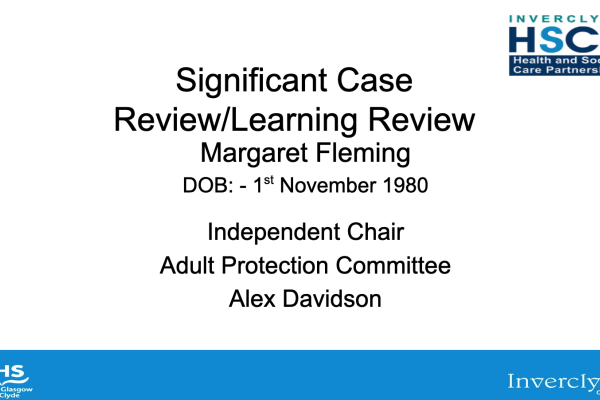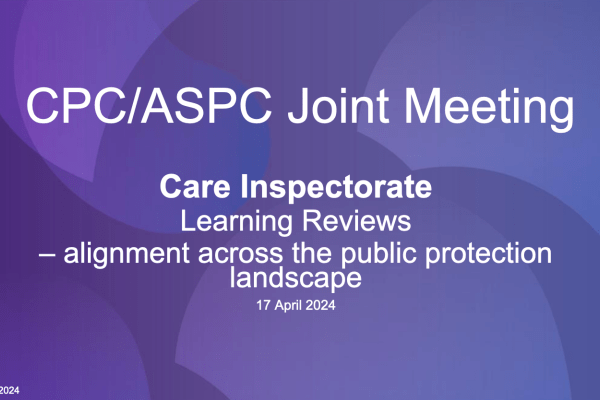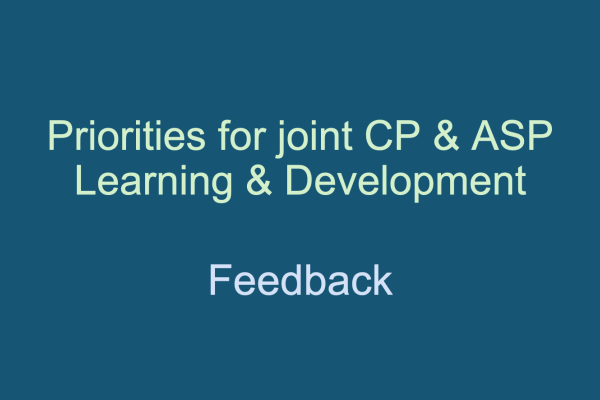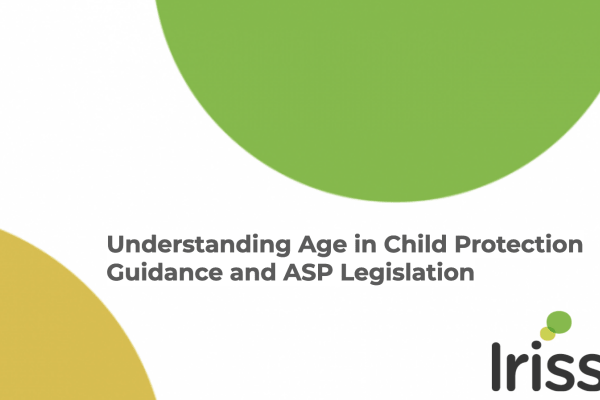Learning and Development Practitioners: Their Experience of Sharing ‘Understanding Age in Adult Support and Protection Legislation and Child Protection Guidance’
Following on from the Understanding Age report, an online session brought together Learning and Development (L&D) colleagues to understand how they disseminate the resource in their local areas. This report captures their thoughts and experiences, offering insights into the practices - and challenges - of embedding new knowledge within local areas.
